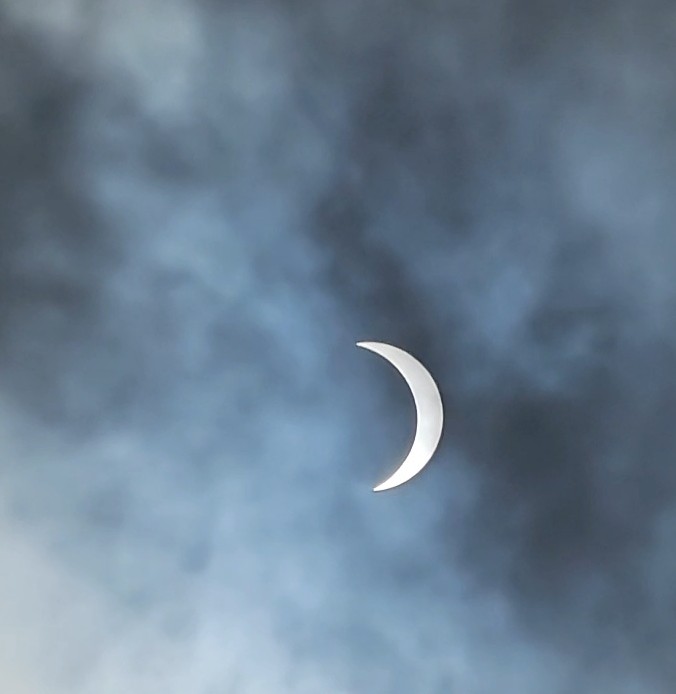

Reminds me of the Rimworld world view
Hey, thanks for reading my bio. You know, you’re pretty cool. I’m glad we got to share this moment together.


Reminds me of the Rimworld world view


deleted by creator


Radness factor is left out of efficiency calculations way too often


It also only serves to continue fueling the polarization of the right. They point and say “See! They will put you in jail simply for saying words!” And since many don’t bother to open the article, it spreads and spreads and fuels their fear factory.
It feels like “responsible journalism” is a thing of the past in the face of appeasing the Algorithm.


As much as I like DJI products and FPV drones in general, I can kinda see where the DoD is coming from on this one. DJI drones are particularly capable (which is part of what makes them so awesome) to the point where some are capable of being semi, if not entirely, autonomous.
Their software is entirely closed source, and thanks to the FAAs own ruling, they are now all equipped with SIM cards and internet access. There’s absolutely a threat model to consider there.
But banning them is the wrong approach. We can’t keep banning good tech just because we’re scared of it. There are entire domestic industries that benefit from DJI tech, and several that exist almost entirely because of it. The best approach would be to incentivize local competition. But since that takes a while… Why not just write custom firmware? We can’t best China in their manufacturing ability, but we’ve got tons of software talent. Write custom firmware, open source it, all domestic products get flashed before flying. Defence keeps a tighter leash on their airspace, and industry keeps their cheap drones. Win-win.


Integrated multiplayer? Hell yeah


Neat idea, or, you could just tell them directly and be like “hey I’m not gonna respond here due to [reasons], come find me on signal if ya wanna chat”
People are usually more engaged when you communicate to them directly


Nah, its been becoming more popular, at least in my circles.


This is the one case where I’d make an exception. I read through the threads, it got particularly heated.


Life has gotten better since I dropped it. Moved a dozen or so people over to Signal and have been running with that ever since.
I do miss the ability to easily stream games, though.


Someone feel free to jump in and audit my take:
The Internet Archive is not a company, does not sell me anything, and is merely providing a public service.
The service has nothing to do with my health or wellbeing. It is not marketed as being privacy forward. Hell, the whole purpose of the project is to make data publically accessable.
Therefore, exposing email addresses… I kinda don’t care?
Of course, it would be way better if they just used generic login numbers etc instead, but… I feel like this is the equivalent of my library card number getting leaked, and these headlines are treating it like Equifax just leaked my SSN again.


874 partners
Man these polycules are getting crazy


No, closest thing is to join a datahoarder group and trade when needed.
Although with LinkWarden gaining popularity, something like this developing is a possibility.


I define it by whether something is independently verifiable.
I am told that there are 8* planets in our solar system, and where they are located. If I wanted to, I could buy a big telescope, point it at the sky and find all 8.
I am told that it is possible to boil water through nuclear fission. If I had the means, I could take a number of resources, spend decades researching nuclear physics, build my own test reactor, and verify that this is possible.
I am told that the earth is flat. I could get a pilots license, buy a plane, and fly to Antarctica to see the ice wall. I would find that there is no ice wall, just a number of scientists who are very passionate about ice samples. Therefore, it is not independently verifyable.
I don’t have the money to verify all of these claims, but they are all claims that have been verified by hundreds, if not thousands of independent people and organizations throughout history.


No matter how you look at it, Wikipedia is one of the modern wonders of the world; those who maintain and defend it are doing holy work. The availability of free, high quality, publically indexed and equitably accessible information about our modern world is such an under-appreciated gift.
Education is a powerful tool, but when most people hear “knowledge is power” they think of personal success or political might. But its true power is on an evolutionary scale.
No other species in the history of our (known) universe has the capability to study the world, and then share those the conclusions to the next generation with high precision, like we do. It’s absolutely fascinating. It’s what sets us apart from the rest. It defines the human experience.
The reality is that the integrity of this mechanism (or rather, the democratization of said mechanism) is under threat. It always has been, but the nature of the threat has changed, and its scary. I’m glad it is being protected, at least for now.


I have no sympathy for those who attack and deface our libraries, whether they be physical or digital


Yeah, I’ve rewatched s1 several times, but s2 only once


I was like “oh, that’s a cute comic” and then I just started fucking wheezing
Yep. Its just another form of tribalism.
In a similar vein as Meyers-Briggs, Harry Potter houses, and every single buzzfeed quiz.
People are dynamic. We are the product of our experiences, not the position of the planets.
I can hardly remember the days before I became a man of tungsten.